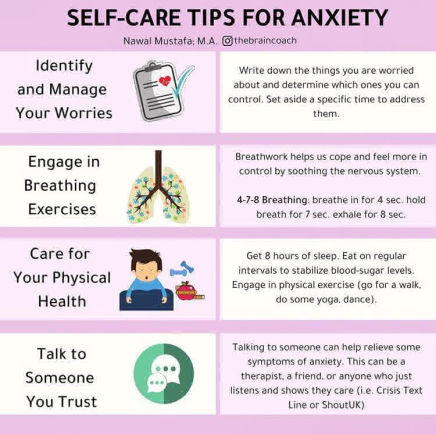What causes anxiety?
There is a big genetic component to anxiety, it can run in families so if you suffer from anxiety, your parents or siblings may also suffer from it. There is a hormonal aspect (adrenaline & gaba levels higher in some people). There is also the personality component; everyone reacts to situations differently and takes on stress uniquely in our day to day living.
What are some common symptoms?
Symptoms of anxiety include, but are not limited to: chest pains, palipitations, headaches, nausea, weight loss due to loss of apetite, fatique, isomnia or difficulty sleeping and in extreme cases anxiety can cause panic attacks.
What can help?
There are some medications that a doctor can perscribe a patient suffering from excessive anxiety but below are some holistic, lifestyle things that you can do to help.
Sleep - when we are sleep deprived our overall mental health suffers, so it can be beneficial to look at your own sleep routine and not only address if you are getting enough sleep (advised for an adult is 7 to 8 hours) but also that your quality of sleep is sufficient. If you wake up after sleeping for your 7/8 hours but still feeling tired or sluggish, than you may not be getting enough REM (deep) sleep.
Excercise - This can be a difficult one, it is understandable that the last thing anyone wants to do is excercise if they are having a bad day but when we excercise, the body releases endorphins that mimic morphine in the body that has a calming affect on the brain. This doesn't require excessive excercise to benefit, even going on a small walk will provide these relaxing effects.
Getting Outdoors - Being outside during the day can actually repair your body clock/circadium rythem so your body knows when is day and when is night, this can be great at trying to regulate your sleeping patterns. Being present and practicing gratefulness in nature is also known to be beneficial for anxiety and other mental health issues.
Mindfulness - Mindfulness is proven to have great benefits to help with anxiety allowing the brain to calm and decompress. Mindfulness is the act of being conscious in the present moment; this can be done with breathing excercises, mindful eating etc. There are lots of great mindful excercises on youtube such as guided meditations and body scans.
Therapy - If you are finding your life is beginning to suffer, and everyday tasks are becoming too much due to excessive or persistant worry, please know you are not alone. Please reach out to a professional to help you. There are lots of ways a therapist can support you such as Cognitive Behavioural Therapy and Emotional Regulation Therapy which are evidence based treatments in helping with anxiety.

